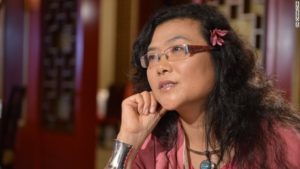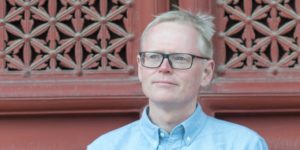
China lawyer Mark Schaub looks back at the achievements of President Jiang Zemin, who passed away last week. “A Man Who Did Not Get The Recognition He Deserves,” Schaub writes at his China Chitchat.
Mark Schaub:
I have always been a big fan of Jiang Zemin.
Jiang was already president of China (and more importantly CCP party secretary) when I arrived in Shanghai (the city where he had just been mayor) in 1993.
The Western newspaper reports about Jiang Zemin when he passed seem to underplay both his achievements and his playfulness – playfulness being a word seldom associated with senior politicians in an authoritarian state.
The Western media has portrayed Jiang as an unwilling reformer (goaded by Deng Xiaoping to move more quickly and then with Zhu Rongji doing much of the heavy lifting) and authoritarian in cracking down on the religious group Falun Gong and that when he was Shanghai mayor he brutally suppressed protestors in 1989.
On the first point GDP per head in 1993 was USD 377 went up by almost 350% to USD 1290 by 2003. Accordingly, during Jiang’s tenure China went from being a very, very poor country to a poorer country poised to become a middle-income economy (i.e. USD 12,500 in 2022).
Jiang was extremely keen on attracting foreign investment. An early client of mine was the Rotterdam city representative office. They had opened several years before and we were just looking at some of their older records (not much to do in Shanghai in the early 1990s) we found a cache of their opening ceremony – and there he was Jiang Zemin with his beautiful, big glasses. It is unthinkable today but back in the late 1980s the Shanghai mayor was so keen on foreign investment that he would turn up to a rep office opening…
As to Jiang’s authoritarian streak this does not accord with my recollection – at least when discussing in Shanghai this back in the early 1990s the understanding was that Jiang Zemin was noticed by the upper ranks because he was able to keep the students calm without resorting to violence. As the students became restive Jiang went to Jiaotong University (his alma mater) and recited the entire Gettysburg Address to the students in English. I assume he then threatened the students that if they did not disperse, he would recite again. They dispersed.
I also remember that from 1993 to 2013 the taxi drivers were much more forthcoming in providing their opinions. This may also be due in no doubt to improved comprehension on my part but in the late 1990s one did not feel that the taxi drivers were feeling particularly constrained.
Mark Schaub is a speaker at the China Speakers Bureau. Do you need him at your (online) meeting or conference? Do get in touch or fill in our speakers’ request form.
Are you looking at more strategic experts at the China Speakers Bureau? Do check out this list.

